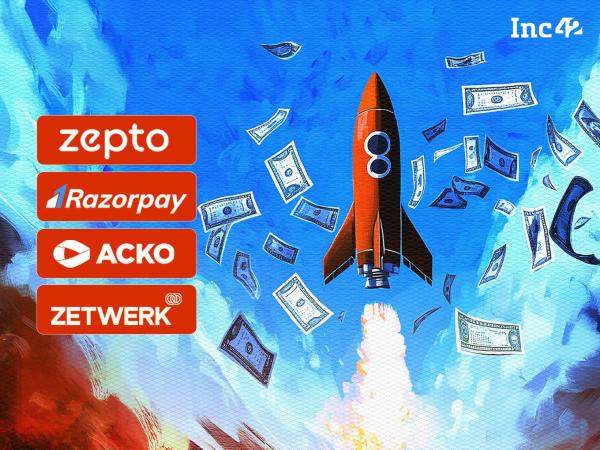

What’s buzzing in the startup zone? It’s profitable growth.
This buzzword echoed clear and loud at fintech major Razorpay’s FTX 25 event last week, where startup founders, government stakeholders, investors and enterprises converged to talk about the state of the ecosystem.
Although fintech and the financial services industry was at the heart of it all, we even got a glimpse of how startups are practicing greater financial discipline, more insights on the rapid strides by quick commerce, how GenAI is shaping up and of course, startup IPOs.
In many ways, IPOs are the trigger for the profitable growth trend among Indian startups. 23 startups are in various stages of preparing for public listings by the start of 2025 — many of which were at FTX talking about the reality of listing publicly and the process behind it. Profitability was once again at the front and centre.
“Unlike the VC ecosystem, the public markets are not forgiving. There are shorter periods of wait and, therefore, the way startups were operating a few years ago in terms of growth and profit targets are distinct. The VC capital has not become scarce, but the sentiment of the private investment community has changed,” Gaurav Jain, senior vice-president at sovereign wealth fund GIC, told Inc42 on the sidelines of the event.
Startups are now reviewing investment cycles every week, instead of every quarter, and turned to AI to track the pulse of changing consumer preferences and suggest discount bonanzas around consumer loyalty. “Not just growth, it is the sustenance of profits after IPO which has become a crucial metric,” said Arpit Chug, chief financial officer of Razorpay.
Even listed new-age majors such as Paytm, Nykaa, Zomato, Mamaearth, Ola Electric, Swiggy and others have yet to show consistent profits, let alone profitable growth. Some of them are trading well below their issue price, highlighting the need to maintain a positive cash flow as a means to protect valuation.
As a veteran VC quipped: “IPO is only an event for a company. The real marriage is what happens after the IPO.”
Zepto’s Finance Playbook Ahead Of IPOOf course, that’s a bit too early for many of the startups at the event. Many are still getting themselves ready even before the real work begins.
Quick commerce unicorn Zepto’s IPO will be closely followed and looks nearer than anticipated after the company completed , according to CFO Ramesh Bafna, who had previously led the finance function at Myntra and Flipkart.
“To be honest, the nature of the company I am involved in right now is pretty different from my earlier stints with corporates or startups. We know that quick commerce as an industry is changing. But even we had not expected such rapid pace of change. Within a year, the quick commerce industry has undergone a vast change with non-grocery items now being delivered vastly. This requires monitoring capital expenditures, investment cycles not even quarterly but weekly,” Bafna said.
Investment cycles vary according to seasons or short demand spikes which is unlike any other corporate, so even experienced CFOs need to rethink their approach.
“Setting the narrative, maintaining consistency in your financial performance and putting internal milestones in the public domain, real-time analysis of GMV to cash flow, setting up audit committees and governance plans – these are some of the important measures we put in place as we head for the public listing,” Bafna said.
Startups Chase Consumer LoyaltyCustomer acquisition costs often narrated the market share gains over the last few years, but as startups seek profitable growth, many are actually considering how to reduce CAC by increasing customer satisfaction, rather than just discounts.
Whether it is a fintech or an insurance tech or a traveltech or a simple retail business, customer loyalty scores high among the goals for marketing and sales teams at unicorns and soonicorns.
Over the years, the markets have matured and the companies are now sitting on huge data to devise their next strategy of scaling revenue. Customer loyalty can be built on leveraging this data.
Discounts are not completely out of the picture, but only loyal, repeat customers might enjoy these perks, as the focus now shifts squarely on profitability.
“We operate a large chain of domestic airports in India. And we do not spend a lot of capital on CAC because the customer literally walks into our airports for travel purposes. However, are we giving discounts to every traveller? Certainly not,” Nitin Sethi, chief digital officer for consumer services at Adani Group, said.
Sethi added that customer engagement data tells the company where it should spend money to reward customers “Similarly, the challenge for startups is to identify and retain its loyal base of consumers and establish a consumer loyalty programme which ensures retention.”
Various fintech companies operating in the cards or payments space have also strengthened their customer loyalty programmes over the years in partnerships with hospitality and ecommerce companies.
But switching loyalties is just a click away, with nothing really keeping customers loyal to any one platform. And that’s another challenge that startups will have to tackle after turning profitable, if they have to unlock profitable growth.
The Raging AI StormIt’s impossible to avoid talking about AI when we talk about the startup ecosystem. No wonder, generative AI, large language models, small language models, agentic AI dominated multiple conversations at the Razorpay FTX event, besides profitability and IPOs.
The Indian startup ecosystem has fostered more than 200 GenAI ventures that have raised more than $1.2 Bn since 2020. The use case of GenAI in startups across industries or verticals is now becoming more and more specific with each small or big startup involved in building a layer or tool on top of the foundation models.
Insurtech firm Acko’s CEO Varun Dua cited an example of how his company has been testing GenAI models for months in health insurance for determining patient criteria, scanning through the diagnostic tests, swiftly scanning patient information for disbursing reimbursements, and so on.
For Zepto, the GenAI applicability has helped in managing dark stores, SKUs and prioritising speed.
While the Indian startup ecosystem is still developing specific use cases to build on top of the foundational models, industry leaders are also debating on what has led to India lagging behind China and the US in developing LLMs.
“No matter how much we talk about the growth of the Indian economy, the fact is that India remains a consumption market and collaboration with some of the biggest tech companies for using their foundational models is turning expensive. India needs to think from a build perspective. What are we doing to develop the foundational models?” wondered Brij Singh, cofounder and chief executive of Snow Mountain AI.
“This will not need regulatory concern, VC funding is there anyway. This will require deep research and study for building architecture which we could export to other countries like China did with DeepSeek.”
The post appeared first on .